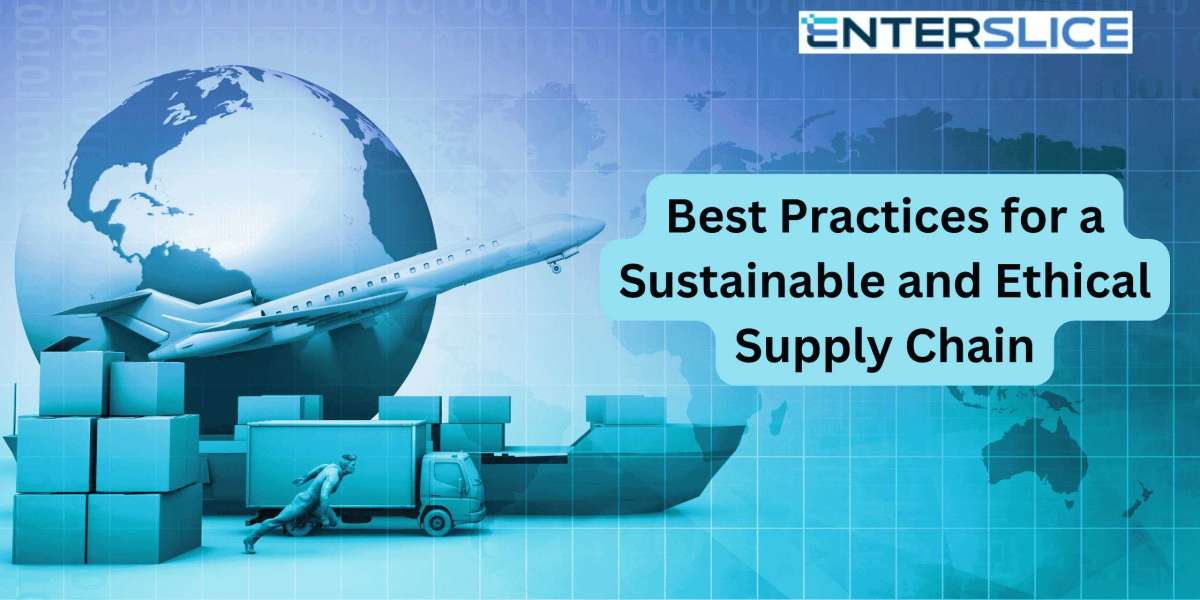A sustainable and ethical supply chain is essential for businesses seeking long-term resilience and responsibility toward environmental and social impact. This involves implementing green supply chain management strategies to enhance both environmental sustainability and ethical practices across each stage of production and distribution. Here’s a look at key practices to help guide businesses in developing a responsible supply chain.
1. Partner with Responsible Suppliers
Choosing suppliers who adhere to high ethical and environmental standards is the foundation of an ethical supply chain. By working with vendors who share your commitment to sustainability, you can ensure that practices like fair labor, waste reduction, and resource conservation are upheld throughout your supply chain. It's crucial to regularly audit suppliers and collaborate with those dedicated to green supply chain management.
2. Implement Sustainable Sourcing
Sustainable sourcing focuses on obtaining raw materials in ways that minimize environmental impact and respect local communities. For example, opting for recycled or renewable materials can significantly reduce resource consumption. Additionally, responsible sourcing includes avoiding materials linked to deforestation or other damaging practices and ensures that resources are obtained legally and ethically.
3. Optimize Logistics and Transportation
Efficient logistics play a significant role in reducing a supply chain’s carbon footprint. Switching to eco-friendly shipping options, optimizing routes, and consolidating shipments can lower fuel consumption and emissions. Transitioning to electric or hybrid vehicles for transportation or collaborating with carriers focused on sustainability can further enhance green supply chain management.
4. Reduce and Manage Waste
Waste reduction is a key component of sustainable supply chain practices. Adopting recycling initiatives and reusing materials in the production cycle can minimize landfill impact. Many companies are now creating closed-loop systems where waste is repurposed, reducing the need for new resources and lessening environmental damage. Proper disposal of hazardous materials is also essential in ethical supply chain management.
Read: What is E-waste?
5. Adopt Energy-Efficient Practices
To reduce the energy footprint, consider upgrading machinery and production equipment to energy-efficient models. Implementing energy-saving practices at every level of production and distribution, from manufacturing facilities to distribution centers, can help reduce costs and environmental impact. Renewable energy sources, like solar or wind, can power facilities, further enhancing sustainability.
6. Use Digital Tools for Transparency and Tracking
Transparency is essential for an ethical supply chain. Digital tools can provide real-time tracking and monitoring of materials and processes across the entire supply chain. With detailed insights into each supplier's practices, companies can ensure compliance with environmental and ethical standards. Blockchain technology, for example, offers an effective way to document each step, creating a transparent, tamper-proof record that reassures both businesses and consumers.
7. Engage in Carbon Offset Programs
For emissions that are unavoidable, carbon offset programs offer a way to invest in environmental projects that reduce greenhouse gases, balancing out emissions from your supply chain. Whether through reforestation initiatives or renewable energy projects, carbon offsets can help businesses meet environmental targets while contributing to global sustainability.
8. Promote Fair Labor Practices
An ethical supply chain is built on fair labor practices, ensuring workers' rights are respected and that they operate in safe, healthy conditions. This includes fair wages, reasonable working hours, and prohibiting child or forced labor. Regular inspections, direct supplier communications, and strong anti-corruption policies help maintain labor standards across supply chains.
Read: What are the benefits of Scrap Validation Services?
9. Educate and Engage Stakeholders
A sustainable supply chain is a collaborative effort involving suppliers, employees, and consumers. Educating and involving these stakeholders promotes a culture of sustainability and ethical practices. Encouraging suppliers to adopt green practices and keeping customers informed about your sustainable efforts can foster trust and boost brand reputation.
10. Measure, Report, and Improve
Regularly measuring and reporting on sustainability performance helps in identifying areas for improvement. Set measurable goals related to emissions, waste reduction, and ethical practices, and provide transparent reports to stakeholders. Continuous evaluation allows your business to make strategic adjustments, driving sustainable progress over time.
Conclusion
Building a sustainable and ethical supply chain is a multifaceted process that requires commitment and collaboration. By integrating green supply chain management principles and fostering transparency, businesses not only contribute positively to the environment but also strengthen their brand reputation and customer loyalty. As consumers increasingly value ethical practices, a commitment to sustainable supply chains can drive both growth and positive change.
Also, read: Who Requires a Business Plan?



